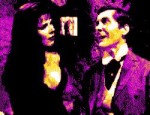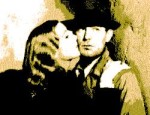Film Review

Loach began his filmmaking career on the tail-end of the kitchen sink tradition that had brought gritty realism to British cinema in the mid to late 1950s. A committed socialist, the director was attracted to social, economic and humanist themes, and tackled these with great conviction in his early films. Loach had directed several plays in the social-realist vein for BBC television and one similarly uncompromising film, Poor Cow (1967), before he made Kes, the film that would immediately establish him as one of Britain's leading filmmakers.
Much of the power of Kes stems from the arresting central performance from David Bradley, a wiry sixteen-year-old whose only prior acting experience was in school pantomimes. It is Bradley's truthful depiction of a brutalised teenager which makes the film so real and moving. The understated sequences in which his character rears the kestrel and makes him his one true friend are amongst the most poignant of any British film. Like most non-professionals, Bradley doesn't act the part, he becomes the part, and this makes it extraordinarily easy for the viewer to identify with his character. If the film's ending doesn't make you feel like you've just been kicked head-first down a mineshaft, you must have watched the entire film with your eyes closed.
But it isn't all gloom and tears. There's a surprising amount of humour in this film. The sequence in which the P.E. teacher (Brian Glover in his film debut) attempts to live out his Bobby Charlton fantasy - playing both striker and referee to ensure a result - is as sidesplitting as it is true to life. In fact, most of the teachers are portrayed unsympathetically in this film. They look more like hardened warders in a prison than educational professionals, brutalising their young charges and failing to instil in them any sense of self-esteem or hope. Only one teacher appears to understand what his job is about, the sympathetic Mr. Farthing, played by Colin Welland (the only professional actor in the cast and future screenwriter of Chariots of Fire). The scene in which Farthing allows Billy to talk to the class about his kestrel-rearing hobby is the most important in the film and is one that should be compulsory viewing on any teacher training course.
Kes is an extraordinary film, beautifully composed and searing in its realist humanity. It is often compared with François Truffaut's Les 400 coups (1959), another memorable depiction of adolescent rebellion in an unsympathetic adult world. Both films are what the French term a cri de coeur, a heartfelt appeal for adults not to write off the next generation and condemn them to a future without meaning, but rather to take the time and the effort to instil in youngsters a sense of self-worth and desire to make something of their lives. Forty years since its was first seen, Kes has lost none of its power to move an audience and remains one of the most inspired and inspirational films of the Twentieth Century.
© James Travers 2009
The above content is owned by frenchfilms.org and must not be copied.
Film Synopsis
Billy Casper is a solitary teenager living in a glum Yorkshire mining town. Bullied at school and abused at home by his older brother Jud, he rebels through small acts of juvenile delinquency that strain his relationship with his mother. Billy is adamant that he will not end up working down the coalpit like his brother, but life appears to offer him no alternative. He has difficulty reading and cannot wait to leave school. His future prospects are no less bleak than his present predicament. Then, one day, he decides to adopt a kestrel fledgling that he finds on a farm near to where he lives. From a book he has stolen from a second-hand bookshop, Billy learns how to nurture the bird and train it. For the first time, Billy finds a sense of purpose and fulfilment in his life...© James Travers
The above content is owned by frenchfilms.org and must not be copied.
Similar Films
Here are some other films you may enjoy watching:- La Religieuse (1966)
- Le Miroir à deux faces (1958)
- 12 Angry Men (1957)
- I Live in Fear (1955)
- Une femme douce (1969)
Other related links:
Film Credits
- Director: Ken Loach
- Script: Barry Hines (book), Ken Loach, Tony Garnett
- Cinematographer: Chris Menges
- Music: John Cameron
- Cast: David Bradley (Billy), Freddie Fletcher (Jud), Lynne Perrie (Mrs. Casper), Colin Welland (Mr. Farthing), Brian Glover (Mr. Sugden), Bob Bowes (Mr. Gryce), Bernard Atha (Youth Employment Officer), Joey Kaye (Comedian at Pub), Robert Naylor (MacDowell), George Speed (Billy's Friend), Zoe Sutherland (Librarian), Eric Bolderson (Farmer), Joe Miller (Reg, Mother's Friend), Bill Dean (Fish and Chip Shop Man), Geoffrey Banks (Mathematics Teacher), Duggie Brown (Milkman), Trevor Hesketh (Mr Crossley), Stephen Crossland (Billy's Friend), Harry Markham (Newsagent), David Glover (Tibbutt)
- Country: UK
- Language: English
- Support: Color
- Runtime: 110 min
The best of British film comedies

The best of American film noir

French cinema during the Nazi Occupation
